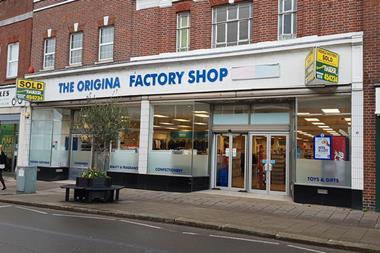The Unfair Commercial Practices Directive is supposed to be an important weapon in a brand owner's armoury. The EU-wide directive, which comes into force in April, aims to protect owners and consumers against copycat branding - the former from losing sales and the latter from mistakenly buying the wrong product. Companies will be forbidden from using packaging that could mislead consumers by mimicking a well-known brand. But, as revealed last week (The Grocer, 28 July, p8), the government intends restricting enforcement of the directive to the OFT and Trading Standards. Experts warn this move, which rules out civil action, is a missed opportunity to get tough on copycats, dramatically weakening the directive and potentially leading to even more lookalikes. The scale of copycat branding is a major concern to owners. While it is difficult to put a price on it, according to British Brands Group research, 20% of people - five million households - have admitted to picking up the wrong product because they thought it was something else. A further 40% of people believe a copycat brand has a connection with the true brand, which reduces sales of authentic brands. This, BBG says, increases costs and stifles potential for further investment. And the figure could be higher still because many consumers don't notice. Current protection is limited to trademark law or the law against 'passing-off', but both require time and money to secure victory. Under trademark law, companies have to prove that the similarity between the lookalike product and their brand was deliberate. For non-trademarked products, owners must establish that customers were likely to confuse the products. That plays in favour of the copycats, according to the BBG. "Existing legislation for passing off is not effective and this new directive is also weak," says John Noble, BBG director, who has compiled a list of products he believes look too similar to the originals, such as Asda's You'd Butter Believe It spread. "By not planning to give companies the right to prosecute, the law is not going to be properly enforced." Brand owners are equally concerned, but even if they were able to take civil action, they would still need to tread carefully. Most copycats tend to be retailers' own label, so manufacturers would be prosecuting their own customers. "If we had the power to take action we would be very careful before taking on Asda or Tesco, for example," says Samantha Legg, senior counsel at L'Oréal. "It is not something we would do as a general practice because if we complained about a copycat brand there is the threat of being delisted. But we would appreciate having the option of pursuing a claim and it would be a deterrent." There are also concerns that the directive does not protect consumers. Help the Aged says copycat products pose a particular threat to older people, especially if they suffer from allergies. The situation is unlikely to improve because of the success companies find with lookalikes. As a result they do not respect intellectual property, says Lavinia Carey, chair of the Alliance Against IP Theft. "It is much easier and cheaper to take an existing brand and say 'let's do it like that'." Without the threat of prosecution, companies will continue to try their luck, says Noble. "A lot of companies sail close to the wind but they would not want to risk prosecution - they are not disreputable businesses - and would take a step back if there were a threat of prosecution."
Close menu
- Home
- Retail & Wholesale
-
Products & Suppliers
- Back to parent navigation item
- Products & Suppliers
-
Product Categories:
- Back to parent navigation item
- Product Categories:
- Alcoholic drinks
- Bakery
- Cereals & breakfast
- Cheese
- Chicken & poultry
- Chocolate
- Confectionery
- Crisps, nuts & snacks
- Dairy
- Fish
- Fresh produce
- Frozen
- Household
- Meat
- Own Label
- Sauces & condiments
- Seasonal
- Soft drinks
- Vaping
- Vegan & plant-based
- World foods
- Suppliers
- People
- Reports & Data
-
Topics A-Z
- Back to parent navigation item
- Topics A-Z
-
Popular topics:
- Back to parent navigation item
- Popular topics:
- Cost of living crisis
- Crime
- Deposit Return Schemes
- Finance
- Government & Regulation
- Health
- Inflation
- Loyalty
- Marketing
- Mergers & Acquisitions
- New Product Development
- Sourcing
- Supply chain
- Sustainability & environment
- Technology
- Ultra Processed Foods
- Vaping
- A-Z all topics
- Content by type:
- Events
- Ask iA (beta)
- Subscribe now
Sign in to comment on this article
Not logged in before? Register for FREE guest access today.
You will be able to:
- Read more stories
- Receive daily newsletters
- Comment on stories
Advert















No comments yet